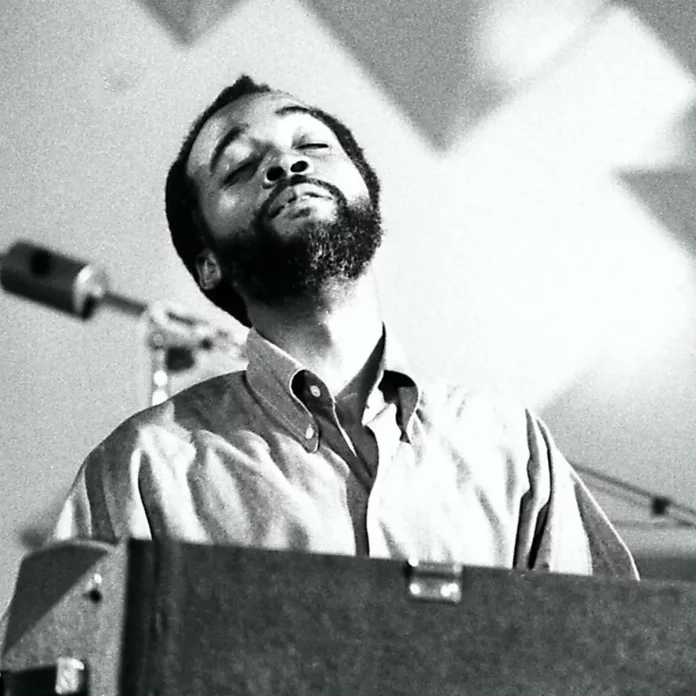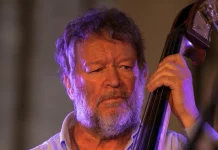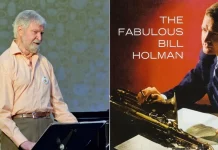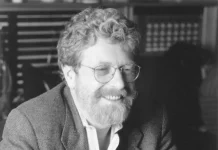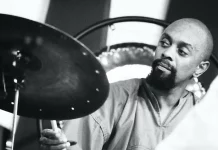Pianist, composer and teacher Ahmad Jamal died at his home in Ashley Falls, Massachusetts on 16 April. He was 92. His daughter Sumayah Jamal said that the cause was complications from prostate cancer.
Born Frederick Russell Jones in Pittsburgh on 2 July 1930, he began playing piano at the age of three and began formal training at the age of seven. His pianistic influences were Earl Hines, Nat King Cole, Art Tatum, Mary Lou Williams and especially Erroll Garner. As a child, he listened to what he called “American classical music” (jazz) but also to European composers. Jamal told an interviewer in 2001: “We studied Bach and Ellington, Mozart and Tatum. When you start at three, you hear what you play. I heard all these things.” He later observed that “Duke Ellington is no different from Bach, as far as I am concerned. Duke writes what he hears, and Bach wrote what he heard.”
For 70 years, Jamal continued to develop and refine a unique style marked by a judicious use of spaces, dramatic explosions of dynamics, but also a delicate touch. A critic for the Village Voice observed in 2010: “You never know what this guy’s going to do. Quips fly from his right hand; queries bubble up on the left . . . linked by a devastating sense of swing, an addiction to group interaction, and a deep trust in melody.”
Miles Davis, a friend and admirer, wrote in his autobiography that Jamal “knocked me out with his concept of space . . . and the way he phrases notes and chords and passages.” In his partnership with Gil Evans, Davis adapted some of Jamal’s composition for orchestral performances. Renowned commentator Stanley Crouch regarded Jamal as a true jazz original, second only to Charlie Parker in the evolution of jazz after 1945.
But Jamal also had his critics. In his book Jazz Changes, Martin Williams maintained that Jamal enjoyed “a supper club following which otherwise displays little interest in jazz”. He cited the album Ahmad Jamal At The Blackhawk (“a San Francisco night club”) as demonstrating that his “real instrument is not the piano at all but his audience”. Williams suggested that “unless you have heard Jamal blatantly telegraph the climax of a piece, or beg applause en route with an obvious arpeggio run which he drops insinuatingly on the crowd after he has been coasting along on the graceful momentum of Crosby and Fournier, then you have missed a nearly definitive musical bombast”.
Throughout his career, Jamal had a marked preference for ballads and their lyrics. He recounted that “I once heard Ben Webster playing his heart out on a ballad. All of a sudden, he stopped. I asked him ‘Why did you stop, Ben?’ He said, ‘I forgot the lyrics.’”
Critic and producer John Hammond heard Jamal’s first trio performing at the Embers club in New York City and signed them to Okeh Records. They also made recordings for the Parrot and Epic labels. But the big break came with the release of At The Pershing: But Not For Me, with bassist Israel Crosby and drummer Vernel Fournier (1958). It was a national and international best-seller. New York Times reviewer Ben Ratliff advised that: “If you’re looking for an argument that pleasurable mainstream art can assume radical status at the same time, Jamal is your guide.” One track in particular, Poinciana, was so popular that Jamal adopted it as his signature tune for the remainder of his long life. The album sold over a million copies and stayed on the Billboard charts for more than 100 weeks. Jamal himself called the album “one of the most perfect ever made in the history of American classical music”. The commercial success of the record enabled him to open a short-lived club and restaurant called The Alhambra in Chicago. Already a devout Muslim, Jamal refused to serve liquor, which was hardly an attraction to most jazz fans.
With working-class Baptist parents – his father was a steel furnace worker – Jamal (known as “Fritz”) explained to the Washington Post in 1983 that working in Pittsburgh night clubs eventually earned him $60 a week – “which was as much as my father was making. I said well, this is it.” He promptly left his home town, and settled in Chicago. It was there, after a visit to North Africa, that he converted to Islam. He later said that this newly adopted religion had brought him peace of mind about his racial identity, and was quoted in Time magazine as saying of his new name “I haven’t adopted a name. It’s a part of my ancestral background and heritage. I have re-established my original name. I’ve gone back to my own vine and fig tree.”
His private life had its problems. Married three times, he divorced his first wife Maryam (formerly named Virginia Wilkins) whom he had married as a teenager. He was later arrested, and charged with non-payment of child support for their daughter. Following the spectacular success of the Pershing LP, Jamal bought a 16-room mansion in Chicago, and was involved in several business ventures – none of which were profitable – and he was subsequently heavily in debt. In the early 1960s he married Sharifa Frazier and with her had a daughter, Sumayah. They divorced in 1982. In the same year he married his manager, Laura Hess-Hay. Following their divorce two years later, she continued to represent him until his death. He is survived by Sumayah and two grandchildren.
During his seven decades of performing, Jamal recorded well over 80 albums. In 1970 Mosaic Records released a CD box set containing the 12 albums he recorded for Argo between 1956 and 1962. Other notable titles were Ahmad Jamal’s Three Strings: The Complete Okeh, Parrot & Epic Sessions 1951-1955 Featuring Ray Crawford, Eddie Calhoun, Richard Davis And Israel Crosby; The Jamal Trio With Israel Crosby & Vernel Fournier The Classic 1958-1967 Recordings (five CDs); and Blue Moon (2011), a collection of standards and three originals. Other latter day releases of considerable merit include Chicago Revisited: Live At Joe Segal’s Jazz Showcase (1992); I Remember Duke, Hoagy & Strayhorn (1994); Ahmad Jamal & Yusef Lateef/Live At The Olympia (2012) and Live In Marciac (2014) – CD and DVD. In the 1970s, he began playing electric piano, and made a recording of Suicide Is Painless, the theme song from the film MASH, released on a reissue of the film’s soundtrack album.
Among his many awards and honours, Jamal received an American Jazz Masters award (1994), the title Living Jazz Legend (Kennedy Centre for the Performing Arts, 2007) and the Ordre Des Arts Et Des Lettres (French government, 2007).
A quietly reserved man, Jamal was always polite to interviewers and admirers. Phil Elwood, jazz critic for the San Francisco Examiner wrote: “I sometimes get the feeling that Jamal would rather crawl into the piano at the conclusion of a performance, so deeply involved is he in his music.” Jamal’s riposte was: “I regret that I still don’t have enough time to spend with my instrument. I think I could become more at one with it if I did.”
Certainly the piano was his first and true love. He once said: “When I pass a piano anywhere, I have to touch it or play it. The reward of being a musician is not money. It’s the wonderful indescribable feeling of knowing you are performing at your highest level. It’s a spiritual feeling. You can always make money. But you can’t always latch on to your own spirit.” But more often than not, Ahmad Jamal did just that.

